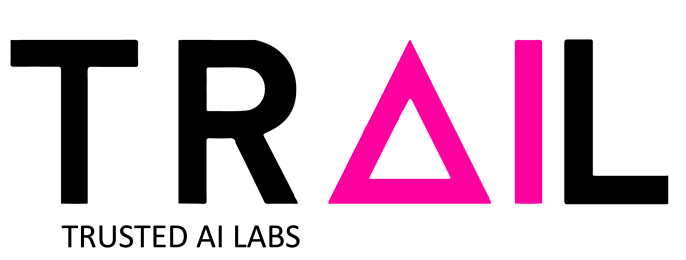Program
| Start | End | Session |
|---|---|---|
| 08:00 | Doors Open | |
| 08:30 | 09:00 | Welcome and Introduction |
| 09:00 | 10:40 | Session 1 - Research |
| 10:40 | 11:00 | Coffee Break |
| 11:00 | 13:00 | Session 2 - Practice |
| 13:00 | 14:00 | Lunch |
| 14:00 | 15:30 | Session 3 - Policy |
| 15:30 | 16:00 | Coffee Break |
| 16:00 | 17:30 | Session 4 - Networking |
| 17:30 | Reception |
-

Session 1 - Research
Advancing Responsible AI: Developments at the Research Level
This session provides an expert-driven overview of emerging research trends in responsible AI.
09:00 09:25 Jerzy Stefanowski (Poznan University of Technology, Poland)
"The Role of Counterfactual Explanations: New Methods and Open Challenges"09:25 09:50 Kostas Stefanidis (Tampere University, Finland)
"Responsible Recommender Systems"09:50 10:15 Eirini Ntoutsi (Bundeswehr University Munich, Germany)
"From Single Focus to Intersectional Perspective: Tackling Multi-dimensional Discrimination in AI"10:15 10:40 Willem Zuidema (University of Amsterdam, the Netherlands)
"The Explanation Conundrum: Why XAI Methods Don’t Work Well Enough Yet for AI That Really Matters" -

Session 2 - Practice
Implementing Responsible AI: Approaches from Research Programs, Academia, and Industry
This session includes practical perspectives on responsible AI from the three Belgian AI research programs (FARI, FAIR, and TRAIL), academia, and industry.
11:00 11:15 Tom Lenaerts (ULB, Belgium)
"If FARI Is the Answer, What Was the Question?"11:15 11:30 Pierre Geurts (ULiège, Belgium)
"The Perspective of TRAIL (Trusted AI Labs) on Responsible AI"11:30 11:45 Sabine Demey (Flanders AI Research program and imec, Belgium)
"The Perspective of FAIR (Flanders AI Research program) on Responsible AI"11:45 12:15 Ambrish Rawat (IBM Research, Ireland)
"Securing Generative AI"12:15 12:45 Panagiotis Germanakos (SAP SE, Germany)
"Trust in AI: The Human-Computer Interaction Perspective" -

Session 3 - Policy
Shaping Responsible AI: Europe’s Global Position on Responsible AI
This session includes presentations and a panel on the EU’s policy and strategic approach to responsible AI, featuring insights from the European AI Office.
14:00 15:00 Opening Statements Milena Machała (European AI Office)
"The EU AI Strategy"
Yves Moreau (KU Leuven, Belgium)
"Dual-Use Research in the Horizon Program: Feeding an AI Arms Race?"
Sabine Demey (Flanders AI Research program and imec, Belgium)
"Responsible AI Is Crucial for Value Creation With AI at Scale"
Grégory Lewkowicz (ULB, Belgium)
"Will the European Digital Omnibus Run Over Responsible AI?"
Benoît Frénay (UNamur, Belgium)
"Implementing the AI Act: Mission Impossible?"
Pieter Libin (VUB, Belgium)
"Why We Need a CERN, Not a Manhattan Project"
15:00 15:30 Panel Discussion Moderated by Rob Heyman (VUB, Belgium)
-

Session 4 - Networking
Connecting for Responsible AI: Showcasing Project Ideas and Research Expertise
This session fosters networking among members of Belgium’s three AI research programmes and explores opportunities for collaboration.
16:00 17:30 Flash Presentations Axel Abels (ULB, Belgium)
01. “Wisdom From Diversity: Bias Mitigation Through Hybrid Human-LLM Crowds”
Alessandra Calvi (VUB, Belgium)
02. “Enhancing AI Fairness Through Impact Assessment”
Benoît Frénay (UNamur, Belgium)
03. “When Sign Language Meets AI: Interplay Between Societal Needs and Fundamental Research”
Antonios Kontaxakis (ULB, Belgium)
04. “Optimization for Sustainable Development of AI Applications”
Yves Moreau (KU Leuven, Belgium)
05. “Towards an Ethical Culture in Technology: Educating STEM Students and Researchers”
Ikhtiyor Nematov (ULB, Belgium)
06. “Data Attribution: From Conventional ML to LLM”
Seddouk Rachid
07. “When Artificial Intelligence and Collective Intelligence Converge”
Apurva Shah (ULB & VUB, Belgium)
08. “Artificial Delegates Resolve Fairness Issues in Perpetual Voting With Partial Turnout”
Manel Slokom (CWI, the Netherlands)
09. “Personalized Post-Processing: How Input Data Shift Recommendation Diversity?”
Thomas Vandamme (ULB, Belgium)
10. “Algorithmic Confusion”
Joost Vennekens (VUB, Belgium)
11. “Neurosymbolic AI for Social Cognition”































